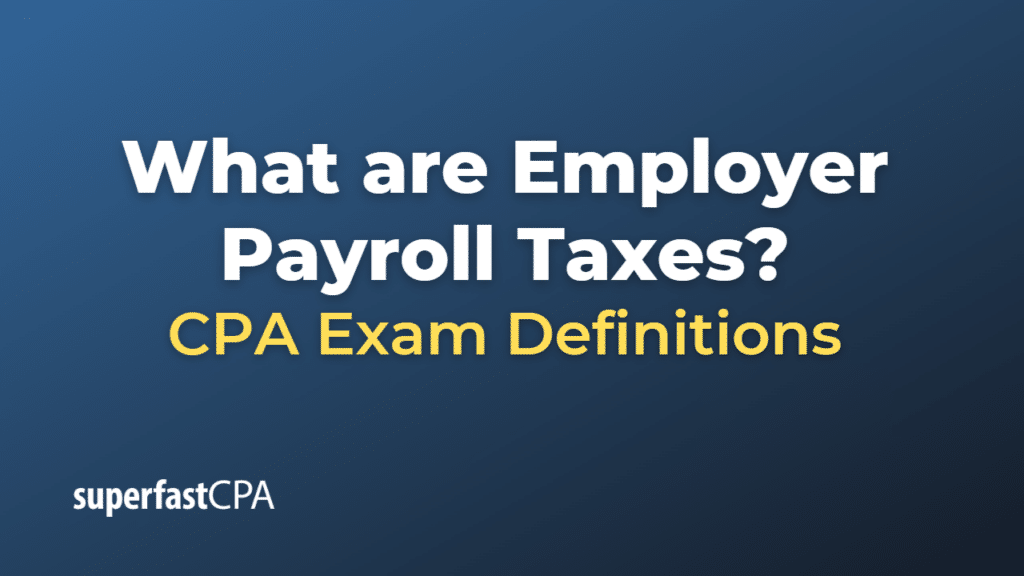Employer Payroll Taxes
Employer payroll taxes are taxes that employers are required to pay on the wages and salaries of their employees. These taxes are an additional cost of having employees and are separate from the income tax that is withheld from employees’ wages.
The main types of employer payroll taxes in the United States include:
- Social Security Tax: Employers must match the Social Security tax that employees pay. This tax is 6.2% on the first $142,800 of an employee’s wages (this wage base limit is adjusted annually).
- Medicare Tax: Employers must also match the Medicare tax that employees pay. This tax is 1.45% of all of an employee’s wages. There’s also an additional Medicare tax of 0.9% on wages above a certain threshold, but only the employee is responsible for this portion.
- Federal Unemployment Tax Act (FUTA) Tax: This tax funds unemployment compensation programs and is paid entirely by the employer, not the employee. The FUTA tax rate is 6.0% on the first $7,000 of an employee’s wages, but employers can often get a credit up to 5.4% for state unemployment taxes paid, making the effective FUTA tax rate 0.6%.
- State Unemployment Tax Act (SUTA) Tax: This tax also funds unemployment programs and rates vary by state and by the employer’s experience rating (which is essentially a measure of the employer’s history of unemployment claims).
In addition to these, some states and cities may have additional payroll taxes that employers must pay. Employers are responsible for calculating, collecting, reporting, and remitting the correct amount of payroll taxes to the appropriate tax authorities.
Example of Employer Payroll Taxes
Let’s say XYZ Corp. hires John and pays him an annual salary of $60,000. Here is how the employer payroll taxes would be calculated:
- Social Security Tax: XYZ Corp. must match the Social Security tax that John pays. This tax is 6.2% of John’s wages, up to the wage base limit. In this case, since John’s salary is below the wage base limit (which was $142,800 as of 2021), the tax would be calculated on his entire salary. So, XYZ Corp. owes $3,720 in Social Security tax (6.2% of $60,000).
- Medicare Tax: XYZ Corp. must also match the Medicare tax that John pays. This tax is 1.45% of all of John’s wages. So, XYZ Corp. owes $870 in Medicare tax (1.45% of $60,000).
- Federal Unemployment Tax Act (FUTA) Tax: This tax is paid entirely by XYZ Corp., not by John. The FUTA tax rate is 6.0% on the first $7,000 of John’s wages, but XYZ Corp. can get a credit for state unemployment taxes paid, reducing the effective FUTA tax rate to 0.6%. So, XYZ Corp. owes $42 in FUTA tax (0.6% of $7,000).
- State Unemployment Tax Act (SUTA) Tax: Let’s say XYZ Corp. is located in a state with a SUTA tax rate of 2.0% on the first $10,000 of wages. XYZ Corp. would owe $200 in SUTA tax (2.0% of $10,000).
So in total, for John’s $60,000 salary, XYZ Corp. would owe $4,832 in employer payroll taxes.
Please note that this is a simplified example and actual payroll tax calculations can be more complex and depend on a variety of factors, including the specifics of state and local tax laws.













